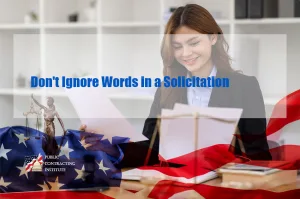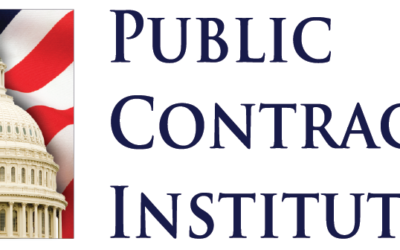Don’t ever ignore words in a solicitation. A contractor ignored specific email addresses for proposal delivery and failed to submit its proposal on time, thereby having its proposal rejected as “late.” Correct Solutions, LLC, B-421533, May 31, 2023. Its protest at the Government Accountability Office (“GAO”) demonstrates that careful reading and complying with a solicitation pays dividends.
DHS solicitation Specifics
The Department of Homeland Security (“DHS”), United States Immigration and Customs Enforcement (“ICE”) issued a solicitation for telephone and video services for use by noncitizens at ICE facilities. The solicitation was posted electronically on the sam.gov website, the governmentwide point of entry for business opportunities greater than $25,000 (including synopses, solicitations and other information, which can be accessed by the public).
In the solicitation under proposal instructions, each offeror was told to address its offer to both the contracting officer plus the contract specialist at these addresses:
[firstname].[initial].[lastname]@ice.dhs.gov
Correct emailed its proposal to the two persons specified prior to the closing date, but instead used the following addresses which were listed on the sam.gov website and not in the solicitation:
[firstname].[initial].[lastname]@dhs.gov
Correct received a status message that “[d]elivery to these recipients or groups is complete, but no delivery notification was sent by the destination server.” Correct then sent its proposal a second time—but the proposal arrived after the closing time for submission of proposals. The agency rejected Correct’s proposal, explaining that the only proposal received by the agency was late, and was therefore rejected.
Correct argued that rejection of its proposal was improper because it sent the proposal to the addresses on the sam.gov website before the closing time. In the protest development, the contracting officer denied that he told Correct that emails to the addresses listed in sam.gov would be received by the agency’s server.
GAO denied the protest because Correct stated that it did not email its proposal to the address stated in the solicitation. GAO held that the words in the solicitation were unambiguous, and properly identified the email submission address. “By ignoring the RFP instructions, and instead using different email addresses obtained from sam.gov, Correct bore the risk that its emailed proposal would not be delivered timely.
Takeaway – Follow All Instructions
Follow every instruction in a solicitation, including email addresses for submission. It appears that Correct may have telephoned the contracting officer to check the submission address. However, Correct should have requested and obtained an email from the contracting officer clearly stating the email addresses, to demonstrate its attempt prior to closing time, to clarify any discrepancy in addresses, and also, to submit as evidence in its GAO protest.
For other helpful suggestions on government contracting, visit:
Richard D. Lieberman’s FAR Consulting & Training at https://www.richarddlieberman.com/, and Mistakes in Government Contracting at https://richarddlieberman.wixsite.com/mistakes.



